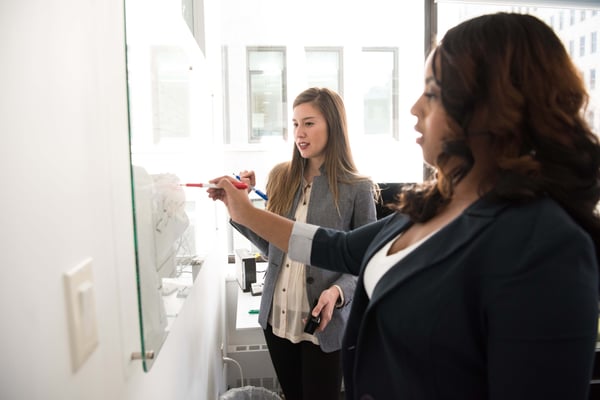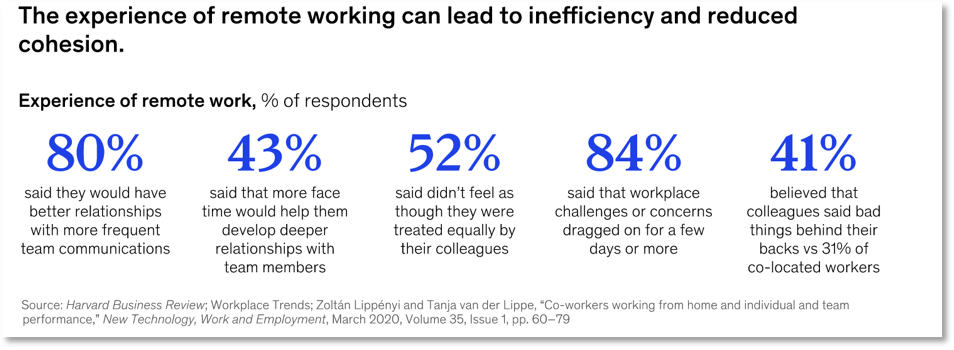
New Zealand will soon be moving down the Alert Levels, meaning most businesses will be able to operate (of course, under social distancing restrictions). While many people have been working from home and using video conferencing, we’ve been finding that leaders are missing their usual “corridor conversations” to nut out challenges and ideas with their peers and colleagues. Research from McKinsey suggests that the abrupt shift to remote working has had a detrimental impact on team cohesion and negatively impacted relationships.

Traditional approaches to improving leadership team performance rely on off-sites and long meetings to resolve issues, establish a sense of shared purpose and build relationships. But that’s not possible right now.
Innovating to continue leader development and improve relationships in a virtual world
In our work with a $1billion infrastructure project Winsborough designed an approach to continue leader development and improve leadership team cohesion and performance, even in lockdown. We first ran a pulse peer evaluation that identified one or two individual behaviour changes that would improve psychological safety and improve team performance. We then divided team members into three facilitated groups who meet virtually for 6 weeks to provide each other peer coaching.
For those new to the idea, peer coaching is a tool that encourages leaders to support each other in their development. It emerged in the 1980s in the education sector but has been little used in business. Peer coaching though, offers many benefits, including:
1. Meaningful discussions are easier because group sizes are smaller.
2. Participants retain learning better with 'micro' or bite sized input.
3. Learning is relevant as peers share practical input about what they tried or observed, and what worked or had unintended consequences.
4. Peers support and hold each other accountable for behaviour change.
5. These sessions give individuals a chance to connect, building relationships across the business.
What does it look like?
Small groups of leaders connect with a group coach/facilitator and work on a topic for 90 minutes. The group gets together virtually over 6 sessions. They follow a process of checking-in and sharing personal updates, then reviewing each person’s progress and struggles with their development goals. The emphasis is on behaviour, attitudes and change. Members critique, cajole, support, offer feedback and their experiences. Importantly, since all the individuals work together daily the conversations are rooted in real work life. With skilled facilitation team members develop a commitment to each other’s growth and success, with concomitant benefits for team work.
This simple yet powerful approach to leadership development is lightweight, scaleable, engaging and high-impact. It supports leaders to make progress on immediate business challenges, to connect leaders together (that might be missing their usual quick, meaningful conversations with colleagues) and to build coaching capability.
Winsborough have been using this approach with a number of utilities and construction companies in the last few weeks. We’ve been getting rave reviews about the benefit of being able to share stories and successes in a forum that brings significant development benefits because its not purely task focused.
If you’d like to know more about what we’re doing, get in touch...
You can find a selection of Leadership Resources that the Winsborough team have put together to help you through the Covid-19 pandemic and beyond here
